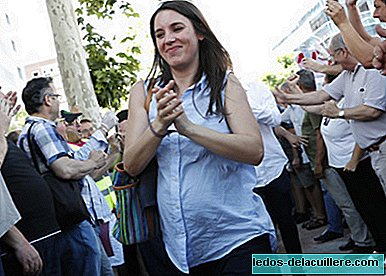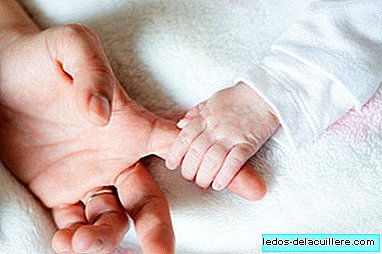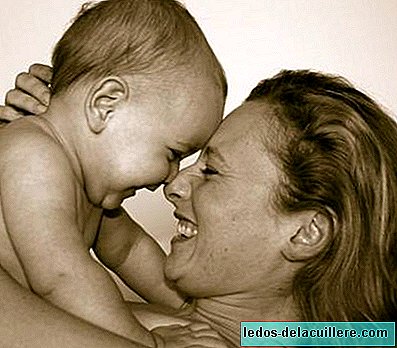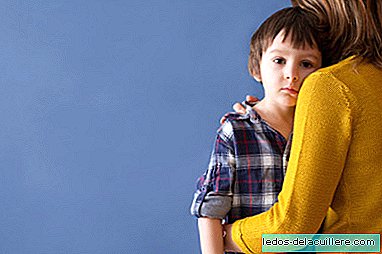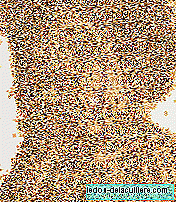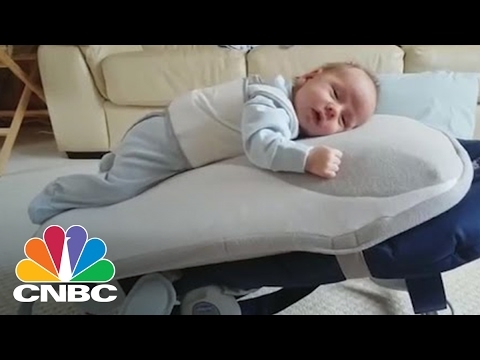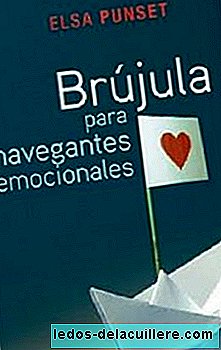
I bring you today my comment of a magnificent book, “Compass for emotional navigators” by Elsa Punset, Bachelor and Master in Philosophy and Letters from the University of Oxford, studied composition at the Manhattan School of Music and Sound Engineering at the New School in New York. Upon returning to Spain, he worked at the Cadena SER and completed his training with the Master of Journalism of El País. She worked as an editor in the educational area of the Anaya Group and later served as the editorial director of the Author Foundation.
Currently Elsa, mother of two daughters, investigates the emotional level of the human being under the sponsorship of the Marcelino Botín Foundation and is the author of this work that I consider essential, especially for parents, that we seek to offer our children an education and parenting based in respect and emotional health.
He explains that when we are children, the implicit and explicit education we receive is not respectful of us and we are taught that we must train according to what adults tell us at all times. The image that we are given of ourselves is that we are imperfect and ignorant and it is from the world of adults from which we must expect all support.
Convinced that they cannot trust their feelings and that their mind is still weak, children give their authority to the adults around them: parents, teachers, family members, neighbors ... They will probably never stop doing it - they will always fear that their conscious decisions, and of course your way of feeling life, your emotions, are not appropriate. We will have convinced you from the cradle.
There comes a time when we do not know ourselves and we do not recognize our creativity and morality, but we are what parents and teachers have wanted to model. That makes us grow with a tare, lack of confidence in ourselves and the custom of hide our emotions.
When we are adults, we adapt to a hierarchical society in which we depend on the opinion of others to be comfortable with our decisions and our feelings. We need the approval of others to feel adequate. If we follow the rules, we will receive this approval. Anyone who gets out of the emotional and social gear will feel abandoned to their fate, without even needing the explicit disapproval of others. You will simply feel that you no longer belong to the group and associate this feeling with disapproval, that is, with the exclusion of the group.
The need for approval and membership It becomes what will guide our behavior forever, because, since childhood we have been deformed, rather than trained, not to be ourselves and hide behind appearances.
Thus, others gradually become a source of security for us, because we depend on their approval for everything. We do not relate as equals, but as dependents. We have not learned to relate in a subtle way, through feelings, affinities, spontaneous affective needs. We recognize the other according to the material symbols he exhibits, the ideas he expresses, the newspapers he reads or the type of car he drives. Depending on the group we want to belong to, we must assimilate certain membership symbols. Gradually, we replace the genuine links between human beings, sympathy or love that arise spontaneously, by those structured exchanges that offer us the security of belonging to a human group, in exchange for the acceptance of certain norms.
Not only is the tax raising model demolished by Elsa Punset in this work, but also the current education system It is analyzed and presented with nothing friendly dyes. A reformulation of pedagogy and the entire educational organization is essential for children to grow with confidence in their possibilities, with creativity and freedom.
Education, as a result of becoming universal and compulsory, seemed to allow everyone access to knowledge tools that could help each one to control their lives to a point. But the foundations of education created for the societies of the industrial revolution were based on the prevailing political and social models: the criteria were utilitarian, educating people so that they could work and contribute to the market economy, and the model was authoritarian and hierarchical: an almighty teacher dictated his truths to children.
The work progresses into the knowledge of the patterns of our actions. Knowing the fear, anger, selfish interests that nest in us, is essential to order emotions, without repressing them, but without letting their imprint and dominate our brain.
I highly recommend this work, “Compass for emotional navigators”, by Elsa Punset, an essential book to get to know each other better and be happier and better parents.


